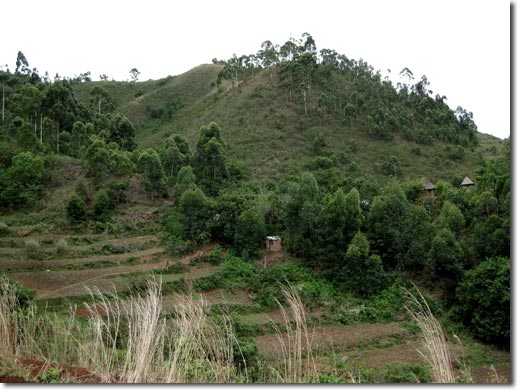Creating “alternative” spaces through Permaculture: The Chikukwa Permaculture Project
By Juan Tiney Chirix
Introduction

The villages of the Chikukwa clan are located in southeastern Zimbabwe near the border with Mozambique. With the help of a German couple who worked as teachers in the area, six Chikukwa villages started developing the Chikukwa Permaculture Project in 1991. The population is around 110 households per village for a total of five thousand people, and the project sought to mitigate food insecurity by collecting seeds, setting up their household orchards and vegetable plots, and reforesting the area (Leahy, 2013).
Since the country’s economy has been based on agriculture, when an inflation crisis hit Zimbabwe in 2005, the country started to examine rural economies as sources of development. Governmental development plans typically focus on “…capitalist accumulation and liberal notions of benevolent trusteeship” (Rankin, 2009), and the country’s agricultural development has tended to replicate such western models of entrepreneurship. However, the Chikukwa project started with 50 households in Chitekete village not as a capitalist endeavor, but as a means to address erosion problems caused by extended periods of drought. In the beginning, the project was named the “Nuchidza Dzakasimba” or “Strong Bees” (Leahy, 2013), but later the project expanded into nearby villages and became known as ‘Permachikoro’ (Permaculture School). In 1996, to link up the various village groups and develop a cohesive administration of the projects, the villagers formed the Chikukwa Ecological Land Use Community Trust (CELUCT) (Leahy, 2013). Because it is grounded in the local economy, the Chikukwa project has had sufficient autonomy to contend with a lack of state support and avoid a reliance on foreign funding.
Analysis
Traditional international development practices have been critiqued as a form of colonization and racialization predicted on male dominance, reproducing a capitalist discourse that promotes an entrepreneurial model for poor communities (Escobar, 1996; Rankin, 2009) while constructing rural areas as backward territories compared to cities. As a result, knowledge produced in rural spaces, such as the Chikukwa permaculture project, is devalued as a potential source of alternatives to development (Gudynas, 2011). For example, there are counter-hegemonic projects such as El Buen Vivir in South America (Gudynas, 2011) that promote collective forms of living with and within nature, and which understand all living beings as intertwined with their cosmology (Altieri &Toledo, 2011).

The Chikukwa permaculture project is a holistic method of sustainable agriculture premised on rural and indigenous ontologies in contradiction to the racialized and colonizing development project. In the permaculture project, each living organism is understood to play an important role. “Like governance, leadership, and every other aspect of reciprocated life, education comes from the roots up. It comes from being enveloped by land” (Simpson, 2014). Villagers have gradually cultivated the land, teaching other members to participate in “collecting seeds from useful plants, establishing perennial legume trees, setting up their household orchards and vegetable plots, establishing small nurseries to grow fruit trees for sale and distribution in the villages” (Leahy, 2013).
So-called alternative political and economic models, such as permaculture, provide a spark of hope because they serve to regenerate life and promote unity in communities. As Leahy (2013) explains, “Permaculture promotes the development of polyculture of agricultural crops which are meant to be grown in combination to allow synergies and aid production.” In contrast to this, industrial agriculture focuses on mono-crops, destroying the fertility of the land, and degrading the biosphere around it. Thus, the Chikikwa permaculture project has similarities to the El Buen Vivir, an approach developed by indigenous communities in Abya Yala (also known as Latin America).
An important aspect of the learning between farmers is that they already have tested the various production technologies, allowing each new member to see the result of their work. This approach is the opposite of governmental development projects, where strangers try to introduce projects that do not work because of geopolitical and economic conditions (Rankin, 2009). Instead, the villagers have worked as a collective to ensure the successful development of the project for almost 35 years. They have carefully negotiated different positions and relations of power, both within villages and with external actors, allowing them to maintain a long-term commitment to the project (Rabia, 2015; Katz, 1994; Sletto & Nygren, 2015).
Implications

The Chikukwa project in Zimbabwe contributes to the discussion around the role of situated knowledge production in planning, particularly in terms of its role in fostering structural changes. Listening to subaltern voices through inductive methodologies challenges traditional epistemologies of planning, because such critical approaches recognize the agency of people that have been “Otherized” by western knowledge.
The horizontality of negotiations that characterizes the Chikukwa project has led to a more efficient resolution of conflicts. Villagers’ long-term commitment to the project has created attachment and motivation, especially since their work has been showing results year after year, and the autonomy of the project has fostered the development of new permaculture methods. Because of the limited participation of outside agencies (such as NGOs and state institutions) and lack of external funding, the project has not seen what Watson (2009) refers to as conflicting rationalities caused by the imposition of Global North planning paradigms.
The dominant western epistemologies of modernity have long shaped interventions in “undeveloped” countries (Escobar, 1996, 13; Watson, 2009), but we are now seeing a change as “new” knowledges come to the fore in regional and urban planning. It is important in international planning to imagine new geographic stories (McKittrick, 2006) or, in this case, new planning stories. The recognition of indigenous and black ontologies could help planners imagine new forms of planning based on knowledge situated in the land (Perry & Rappaport, 2013; Simpson, 2014), thus fostering more inclusive and collective processes of place-making.
